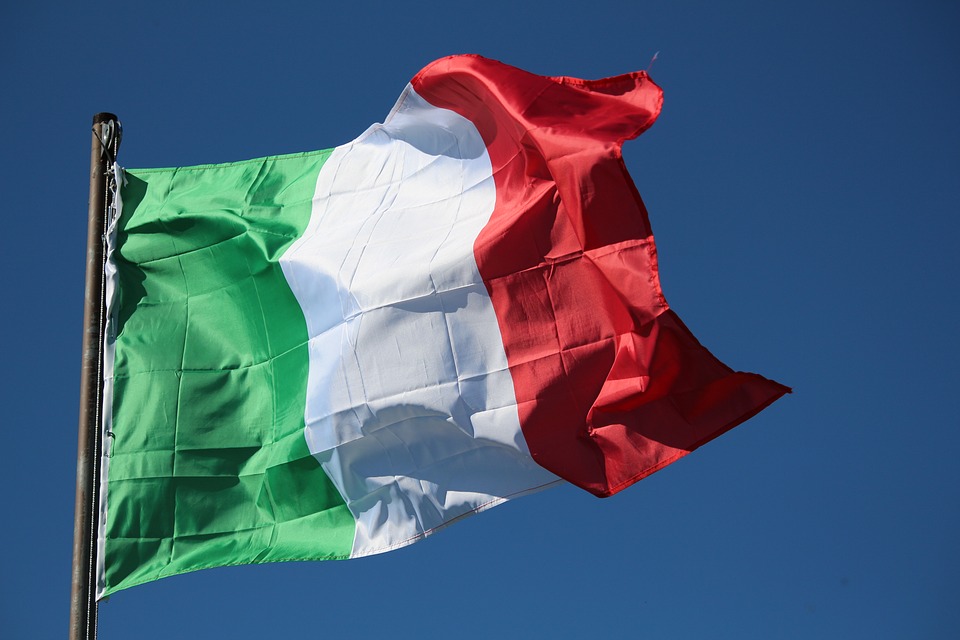"This is a historic day," the decree’s author Matteo Salvini, vice-premier, interior minister and leader of the right-wing populist party "Northern League" responded to the results of the Senate vote. Given the controversial nature of the document he initiated, the government took extreme measures, linking the vote on migration issues with a vote of confidence in the cabinet. Thus, the authorities achieved the approval of the decree without making a number of amendments, because otherwise the already hard-formed government would have to resign. As a result, 163 parliamentarians voted in favor, another 59 were against, 19 abstained.
The new government of Italy was formed in June. Almost immediately, Minister Salvini, one of the main critics of the migration policy of the European Union, declared his goal to prevent Italy from becoming a “European refugee camp”. Soon, the head of the Ministry of Internal Affairs proposed a whole package of measures to resolve the migration situation, which is expected to reduce budget expenditures on receiving migrants and redirect up to € 1.5 billion to ensure security (including the fight against the mafia and illegal migration). Among other things, the government plans to deny asylum to those who are accused of drug trafficking or pose a threat to national security, as well as to take the refugee status away from criminals and those migrants who, despite the asylum received, travel to their homeland.
A number of new provisions provoked fierce criticism from the opposition and human rights organizations that accused Rome of refusing to protect those most in need. The idea of abolishing the so-called humanitarian protection — an interim status that was granted for two years to those migrants whom the state could not give asylum, but who was not send back to their dangerous homelands — caused particular indignation. The Italian Refugee Council expressed “grave concern” about this decree. "The abolition of humanitarian protection will put thousands of people outside the law," - said the organization. “Lawmakers still have time to make the right decision,” warned the United Nations High Commissioner for Refugees even before the vote in the upper house of the Italian parliament.
Those who disagreed with the adoption of such a law were in the Senate itself: five parliamentarians from the 5 Star Movement, which is part of the ruling majority of Italy, did not participate in the vote of confidence in the government. Senators insisted on further discussion of the text with a view to amending. However, even in the absence of their votes, a majority was withheld, and the decree was approved. Now the decree on security must be approved by the Chamber of Deputies (the lower house of the Italian Parliament).
source: reuters.com
The new government of Italy was formed in June. Almost immediately, Minister Salvini, one of the main critics of the migration policy of the European Union, declared his goal to prevent Italy from becoming a “European refugee camp”. Soon, the head of the Ministry of Internal Affairs proposed a whole package of measures to resolve the migration situation, which is expected to reduce budget expenditures on receiving migrants and redirect up to € 1.5 billion to ensure security (including the fight against the mafia and illegal migration). Among other things, the government plans to deny asylum to those who are accused of drug trafficking or pose a threat to national security, as well as to take the refugee status away from criminals and those migrants who, despite the asylum received, travel to their homeland.
A number of new provisions provoked fierce criticism from the opposition and human rights organizations that accused Rome of refusing to protect those most in need. The idea of abolishing the so-called humanitarian protection — an interim status that was granted for two years to those migrants whom the state could not give asylum, but who was not send back to their dangerous homelands — caused particular indignation. The Italian Refugee Council expressed “grave concern” about this decree. "The abolition of humanitarian protection will put thousands of people outside the law," - said the organization. “Lawmakers still have time to make the right decision,” warned the United Nations High Commissioner for Refugees even before the vote in the upper house of the Italian parliament.
Those who disagreed with the adoption of such a law were in the Senate itself: five parliamentarians from the 5 Star Movement, which is part of the ruling majority of Italy, did not participate in the vote of confidence in the government. Senators insisted on further discussion of the text with a view to amending. However, even in the absence of their votes, a majority was withheld, and the decree was approved. Now the decree on security must be approved by the Chamber of Deputies (the lower house of the Italian Parliament).
source: reuters.com





